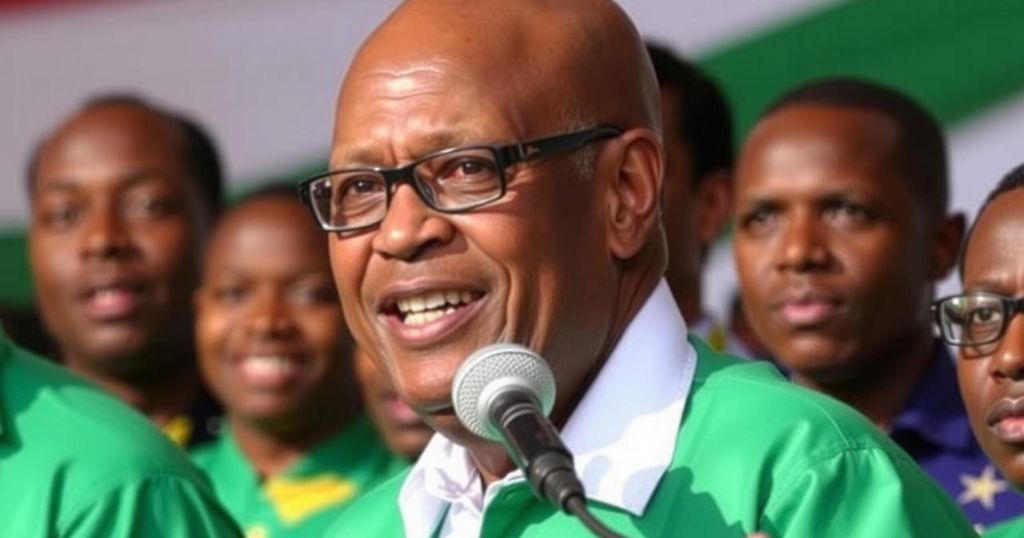World news
AFRICA, AHMED BARTCHIRET, ANGE, ASIA, BURKINA FASO, CHAD, CHINA, DE, DEBY, DEMOCRACY, DEMONSTRATIONS, ELECTIONS, EUROPE, EUROPE/ASIA, FRANCE, GOVERNMENT, MAHA, MALI, NATIONAL ASSEMBLY, NIGER, OPPOSITION, PARIS, PATRIOTIC SALVATION MOVEMENT, REUTERS, RUSSIA, SUCCES MASRA
Jamal Robinson
0 Comments
Chad’s Ruling Party Claims Victory in Boycotted Parliamentary Elections
Chad’s ruling Patriotic Salvation Movement (MPS) has won a majority in the recent parliamentary elections despite opposition boycotts, securing 124 of 188 seats with a turnout of 51.56%. The elections have been criticized by several parties as lacking transparency, while the government insists they represent a movement toward democracy. President Deby, who has made significant moves against former colonial powers, has faced recent security threats to his administration.
Recent results from Chad’s parliamentary election indicate a decisive victory for the ruling Patriotic Salvation Movement (MPS) of President Mahamat Idriss Deby, which secured 124 out of 188 National Assembly seats. This election was marred by opposition boycotts, with key parties alleging a lack of transparency and fairness in the voting process. The National Elections Management Agency reported a voter participation rate of 51.56%, and the assembly will reportedly include representation from 38 different political groups. Despite the opposition’s claims, the government remains firm in its assertion that these elections are a crucial step toward democracy in Chad.
President Deby has been in power since assuming the interim leadership following the death of his father in 2021. His administration has made significant shifts in foreign relations, including ending a defense cooperation pact with France and disputing the presence of French troops in the region, positioning Chad closer to Russia. In recent developments, security forces thwarted an alleged destabilization attempt against the presidency, heightening concerns regarding domestic stability.
The parliamentary elections in Chad are pivotal in understanding the nation’s political landscape, particularly under the leadership of President Mahamat Idriss Deby. Deby’s ascension to power marked a significant change following the long rule of his father, Idriss Deby Itno. The backdrop of insurgency and violence has influenced the political climate, leading to strained relations with international partnerships, particularly with France. This election’s context is further complicated by opposition parties’ views on legitimacy and transparency, revealing broader tensions in the path toward democratic governance in Chad.
In summary, the ruling Patriotic Salvation Movement’s victory in Chad’s recent parliamentary elections raises significant concerns regarding the legitimacy of the electoral process given the opposition’s boycotting stance and allegations of unfairness. President Deby’s administration continues to advocate for these elections as part of a democratic transition, while simultaneously navigating a complex relationship with international partners and internal security challenges. The situation highlights the delicate balance of governance and opposition in Chad’s ongoing political narrative.
Original Source: www.dw.com




Post Comment